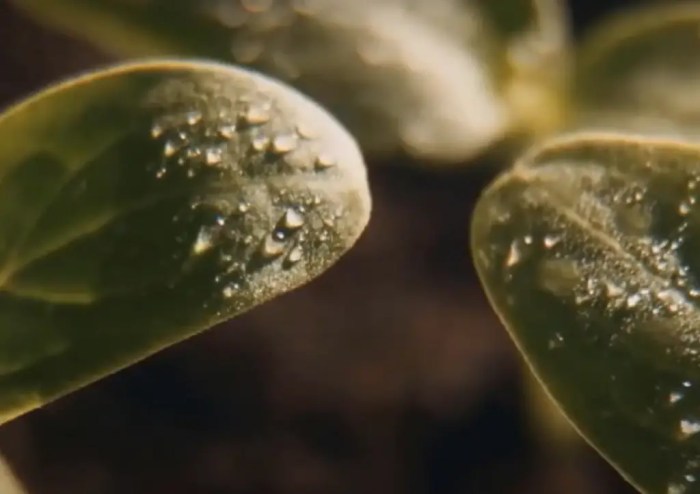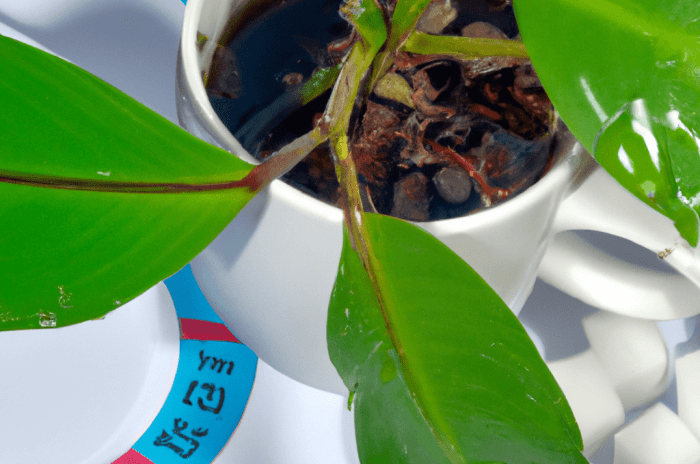Does Sugar Water Help Plants Grow?
Sugar Water and Plant Growth: A Detailed Examination: Does Sugar Water Help Plants
Does sugar water help plants – The use of sugar water as a plant supplement is a topic of ongoing interest among gardeners and researchers. While seemingly simple, the effects of supplementing plants with sugar water are complex and depend on various factors, including sugar type, concentration, plant species, and environmental conditions. This article delves into the science behind sugar water’s impact on plant growth and development.
Sugar Water Composition and Properties
Sugar water solutions are composed of water and dissolved sugars. The concentration of sugar significantly impacts its effects on plants. A solution with a high concentration of sugar will have a higher osmotic pressure compared to a solution with a low concentration. Different types of sugars, such as sucrose, glucose, and fructose, may elicit different responses from plants due to variations in their metabolic pathways and uptake mechanisms.
Sucrose, for example, is a common transport sugar in plants, and its presence may directly influence energy availability for growth processes. The osmotic properties of sugar water are crucial; a high sugar concentration can create an osmotic gradient, potentially affecting water uptake by plant roots through osmosis.
Effects on Plant Growth and Development

Source: gardenprofy.com
The impact of sugar water on plant growth is not straightforward and varies with concentration. While some studies suggest a potential growth enhancement at low concentrations, higher concentrations can be detrimental. The following table compares growth metrics across different sugar concentrations (assuming sucrose as the sugar type). Note that these are illustrative examples and results can vary significantly depending on plant species and environmental factors.
| Sugar Concentration (%) | Height (cm) | Leaf Count | Biomass (g) |
|---|---|---|---|
| 0 (Control) | 15 | 10 | 5 |
| 1 | 17 | 12 | 6 |
| 5 | 18 | 14 | 7 |
| 10 | 12 | 8 | 4 |
Root development can be influenced by sugar water application; high concentrations may inhibit root growth due to osmotic stress, while moderate concentrations might initially stimulate root growth before potentially hindering it. Nutrient uptake can also be affected; excessive sugar may interfere with the uptake of essential minerals. Flowering and fruiting may also show varied responses; low concentrations might promote flowering in some species, while high concentrations can lead to reduced flowering and fruit production.
While sugar water might seem beneficial, its impact on plant growth is debated. The frequency of watering is crucial, however, and understanding your plant’s needs is key; for example, learning how often to water a snake plant is vital for its health, as you can find out by checking this helpful guide: how often water snake plant.
Ultimately, consistent watering, appropriate to the specific plant, is more important than adding sugar to the water for most houseplants.
Mechanisms of Sugar Uptake and Utilization

Source: everythingbackyard.net
Plants absorb sugars through various mechanisms, primarily facilitated diffusion and active transport. These processes involve membrane transporters that move sugars across cell membranes. Once inside the plant cells, sugars enter metabolic pathways such as respiration and photosynthesis. In respiration, sugars are broken down to release energy for growth and other processes. In photosynthesis, sugars can be incorporated into larger molecules, such as starch.
Exposure to external sugars can alter the plant’s metabolic balance, potentially affecting the production of other metabolites and enzymes.
Environmental Factors and Sugar Water Effects, Does sugar water help plants
The impact of sugar water on plant growth is heavily influenced by environmental factors.
- High Light Conditions: Plants under high light conditions may show a more pronounced response to sugar water, possibly due to increased photosynthetic activity and energy demand.
- Low Light Conditions: In low light, the benefit of sugar water might be less significant, as photosynthetic rates are already limited.
- Soil Type: Well-drained soil is crucial when using sugar water to prevent root rot and fungal growth. Soil type can influence water retention and nutrient availability, modifying the effects of sugar water.
- Temperature: Optimal temperature ranges are necessary for effective sugar uptake and utilization. Extreme temperatures can negatively affect plant health and reduce the benefits of sugar water supplementation.
Potential Benefits and Drawbacks
Using sugar water on plants offers potential benefits such as a rapid energy boost, aiding recovery from stress, and potentially promoting early growth. However, drawbacks include the risk of fungal growth due to increased humidity around the roots, and nutrient imbalances if the sugar solution interferes with the uptake of essential minerals. Excessive sugar can also create an unfavorable osmotic environment, potentially damaging plant cells.
An experiment to determine the optimal sugar water concentration could involve growing several groups of the same plant species under controlled conditions. Each group would receive a different concentration of sugar water (e.g., 0%, 1%, 2%, 5%, 10%), with a control group receiving plain water. Growth parameters like height, leaf count, and biomass would be measured regularly. The concentration leading to the best overall growth would be considered optimal.
This experiment should be repeated several times to ensure reproducibility and statistical validity.
Visual Representation of Findings
A plant exhibiting positive response to sugar water might show vibrant green leaves, larger leaf size, increased stem thickness, and an overall robust appearance. The leaves might be slightly more turgid and display a healthy sheen. In contrast, a plant negatively affected by sugar water might exhibit wilting, yellowing or browning of leaves, stunted growth, and potentially root rot.
The leaves might appear less turgid and have a dull appearance. The overall plant health would appear significantly compromised.
FAQ Explained
Can I use any type of sugar for watering plants?
While sucrose is commonly used, different sugars may have varying effects. Experimentation is key to determine the optimal sugar type for your specific plants.
How often should I water plants with sugar water?
Sugar water shouldn’t replace regular watering; it’s a supplement. Infrequent applications are generally recommended, avoiding over-saturation.
What concentration of sugar water is best?
The ideal concentration varies greatly depending on the plant species and environmental factors. Starting with a very dilute solution and gradually increasing concentration is advisable.
Will sugar water attract pests?
High concentrations of sugar water might attract insects. Using diluted solutions and maintaining good garden hygiene can mitigate this risk.




















